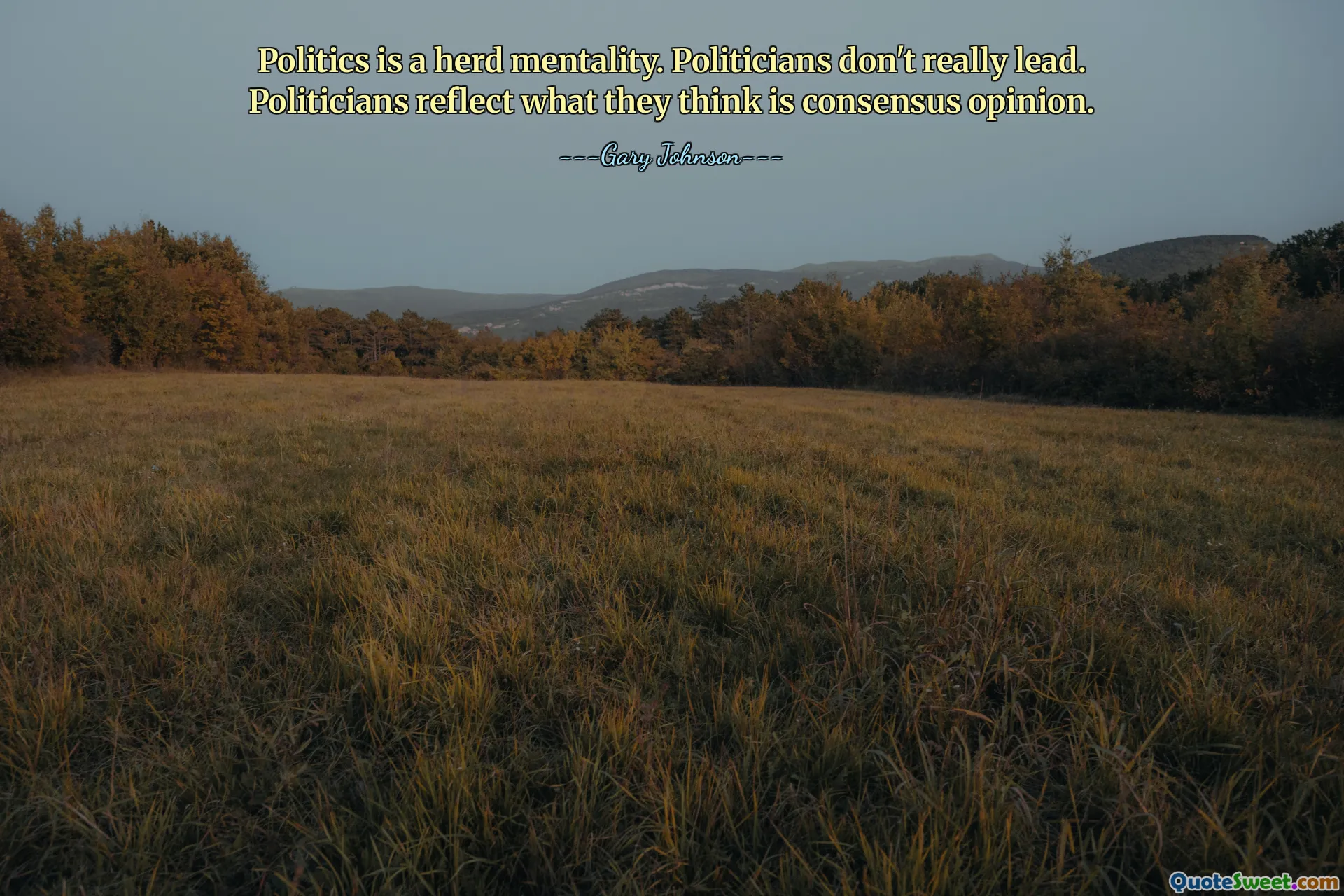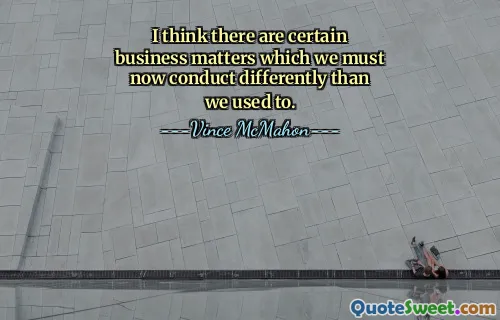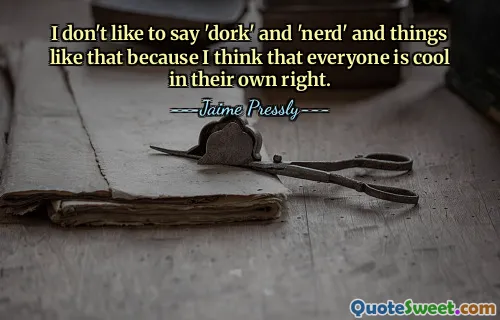
Politics is a herd mentality. Politicians don't really lead. Politicians reflect what they think is consensus opinion.
This quote underscores a nuanced perspective on political dynamics, emphasizing that much of what we see in leadership is not the result of individual initiative or visionary guidance but rather a reflection of collective sentiment. In democracies and even other governance systems, politicians tend to mirror the prevailing opinions and trends among their constituents or the broader societal core to secure support and maintain power. This behavior can sometimes lead to a cycle where leadership is more about catering to popular sentiment than exerting genuine influence or pushing forward transformative ideas.
The herd mentality alludes to the human tendency to conform to group opinions, often out of a desire for social acceptance or fear of opposition. When applied to politics, this phenomenon can diminish courageous or unconventional leadership, favoring safe, consensus-driven decisions that maintain stability but may also suppress innovation or necessary change.
Furthermore, the assertion that politicians don't really lead challenges the romantic notion of leadership as a trailblazing force. Instead, it presents a more pragmatic view where effective leadership often involves understanding and guiding collective opinions rather than dictating from a stand of absolute authority. This perspective can foster greater awareness among voters and citizens about their role in shaping political discourse.
However, it also raises concerns about accountability, authenticity, and the true purpose of leadership. If politicians predominantly mirror current opinions, then issues requiring difficult decisions might be subdued in favor of maintaining the status quo. Ultimately, this quote invites reflection on the nature of influence and the alignment between leaders' actions and the genuine needs or aspirations of the society they serve.











